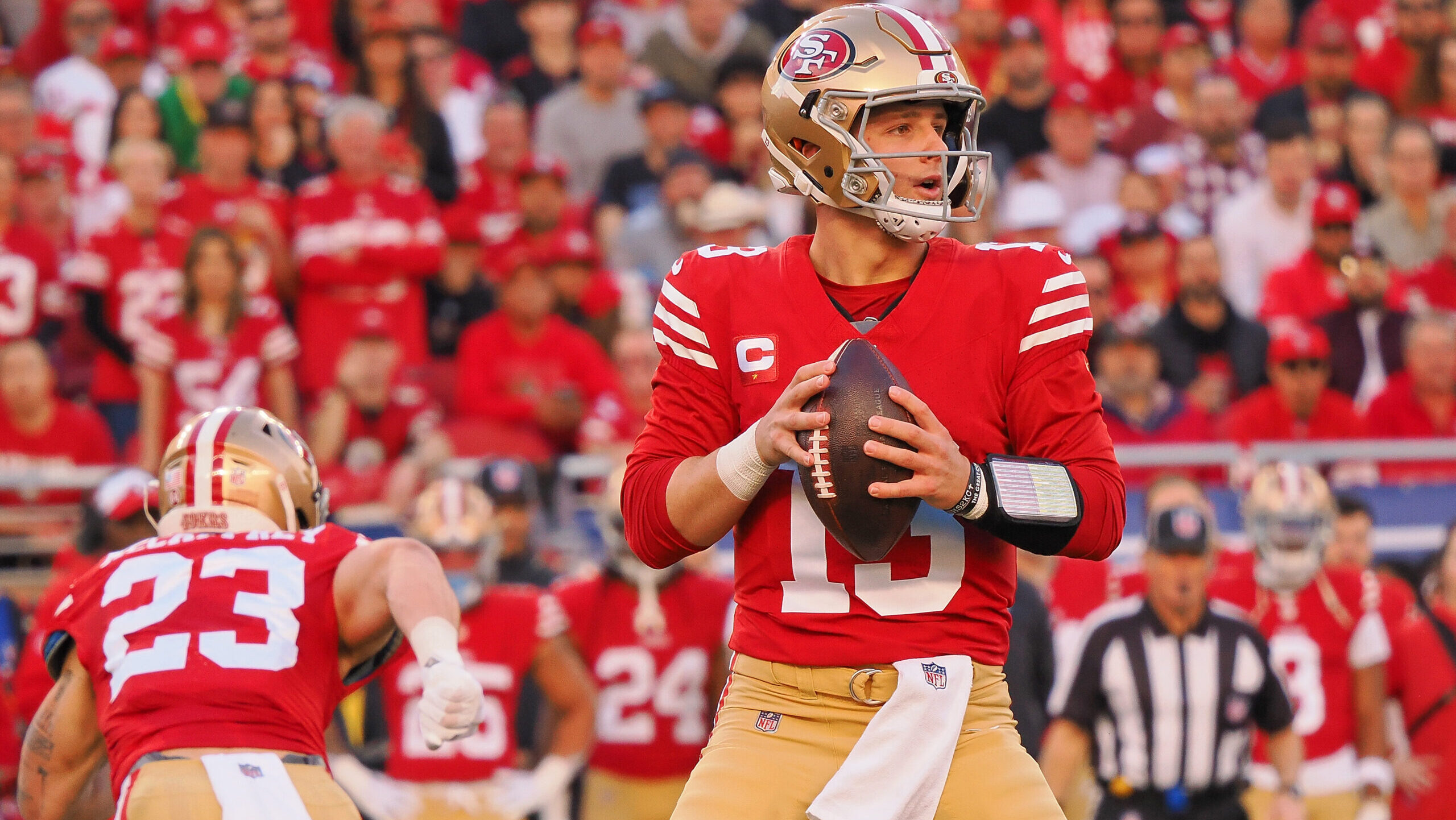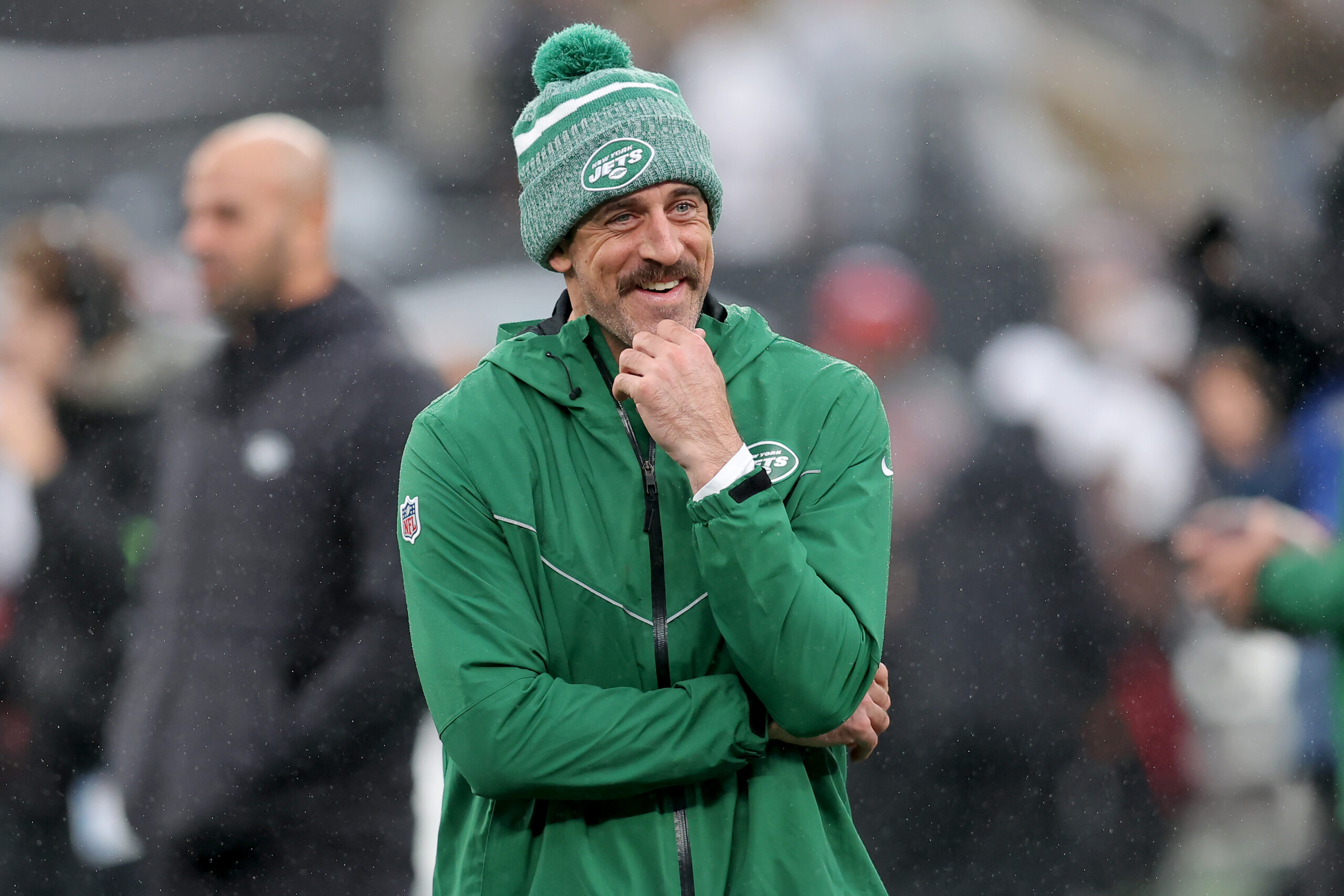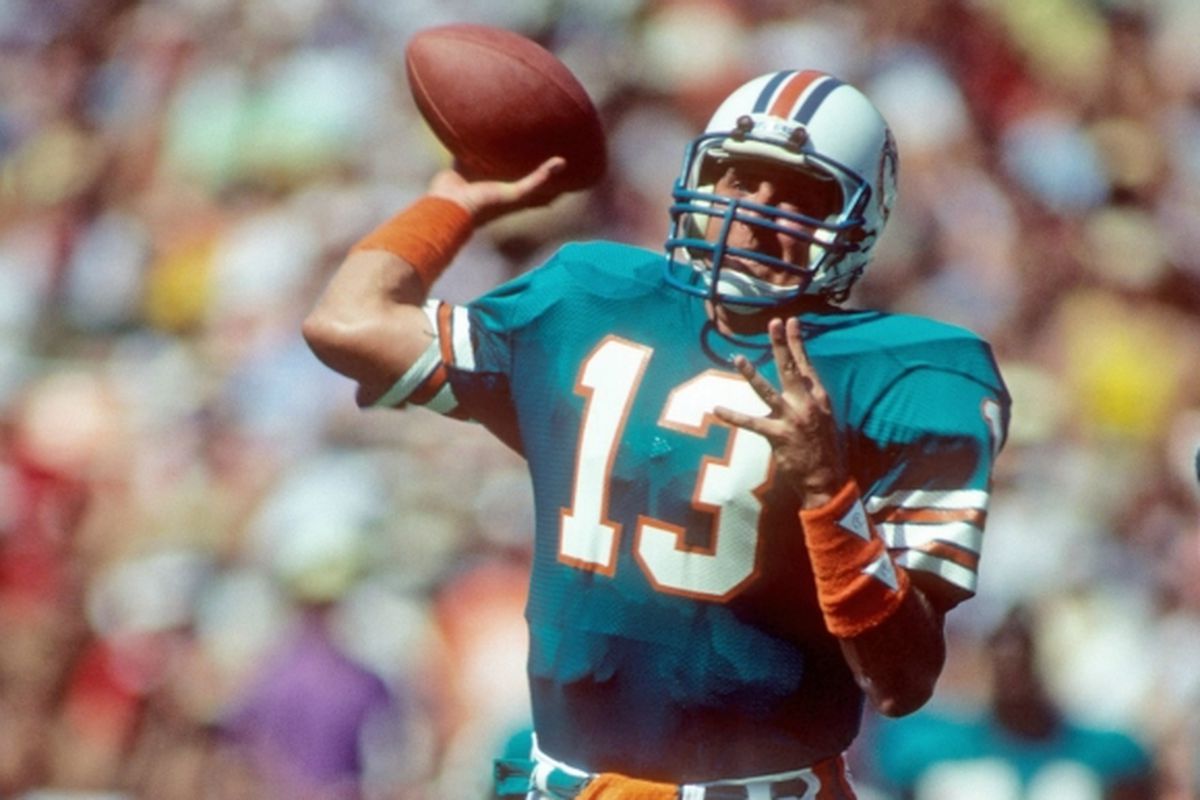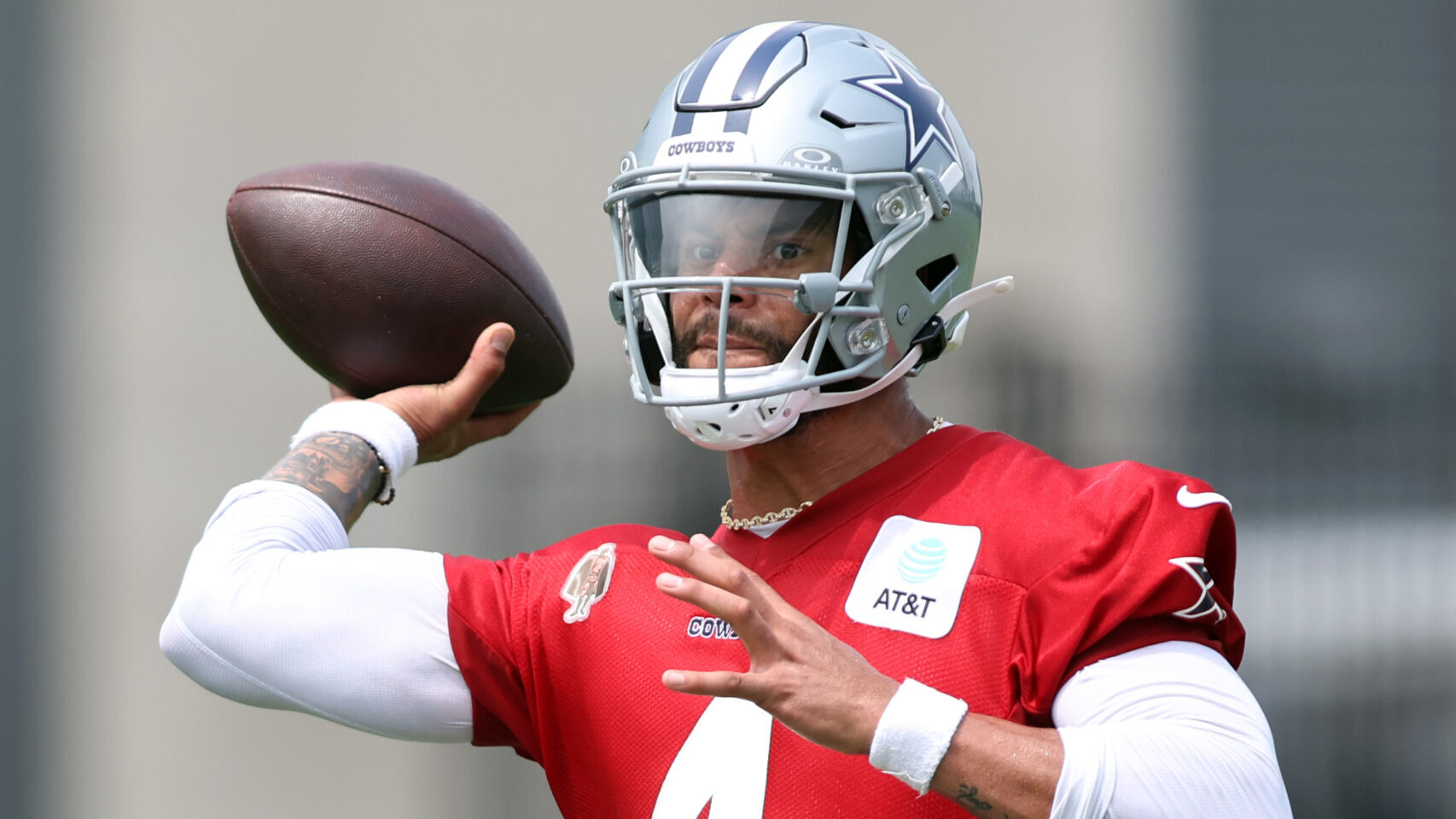Expert Analysis
3/28/24
11 min read
NFL Execs Sound Off On Why Teams Are Giving Up On QBs So Early
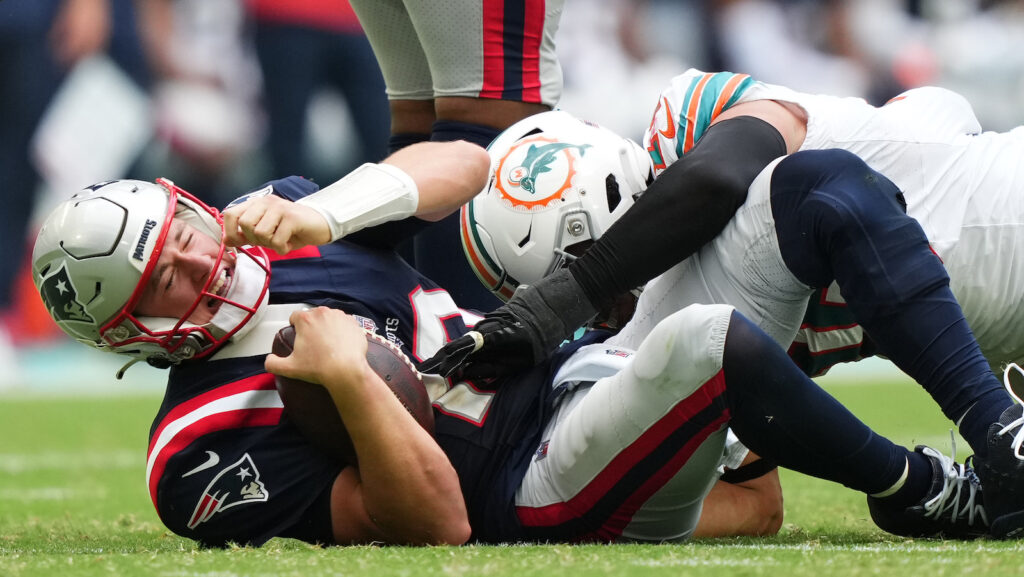
The landscape of drafting and developing quarterbacks has shifted significantly in recent years. Teams are pulling the plug on quarterbacks they selected after just a couple of years if immediate success is not shown.
This offseason, Kenny Pickett, Justin Fields, Mac Jones, Sam Howell and Desmond Ridder were traded away.
Of the top six quarterbacks selected in the 2022 NFL Draft, just two are still with their original team, and both are backups at best. Of the five quarterbacks taken in the top 15 picks of the 2021 draft, only Trevor Lawrence is a starter, and by the end of the offseason, he will more than likely be the only one still with his original team.
| Player | Team | Year | Situation |
| Kenny Pickett | Steelers | 2022 | Traded |
| Desmond Ridder | Falcons | 2022 | Traded |
| Malik Willis | Titans | 2022 | Third-string in '23 |
| Matt Corral | Panthers | 2022 | In the UFL |
| Bailey Zappe | Patriots | 2022 | Cut, now a backup |
| Sam Howell | Commanders | 2022 | Traded |
| Trevor Lawrence | Jaguars | 2021 | Starter |
| Zach Wilson | Jets | 2021 | Will be traded or cut |
| Trey Lance | 49ers | 2021 | Traded |
| Justin Fields | Bears | 2021 | Traded |
| Mac Jones | Patriots | 2021 | Traded |
The 2024 NFL Draft is rapidly approaching, and four quarterbacks could be selected in the top four picks for the first time. The 33rd Team spoke to several team executives, coaches and other football personnel to understand why teams are quick to give up on quarterbacks and whether there are any solutions.
>>READ MORE: Top 11 Quarterback Prospects in 2024 NFL Draft
Why Is The Shelf Life of Young QBs So Short?
AFC Executive
“Quarterbacks are drafted more based on their position than their actual skill level. Before the rookie wage scale, only players worthy of top money were drafted in the top 10. Now, quarterbacks are frequently picked in the top 10 simply because of their position, which pushes even mediocre quarterbacks into the top picks. This affects how other quarterbacks are evaluated.”
“Players like Trey Lance, Justin Fields, Mac Jones and Zach Wilson would likely be second or third-round picks if they came out when Aaron Rodgers did. The fact that they are considered top prospects highlights how desperate teams are for a quarterback and how inflated the quarterback market has become.”
Eric Galko, Director of Football Operations for the Shrine Bowl
“I believe it all really stems from the 2011 CBA change regarding the rookie wage scale. Before that, the investment in all draft picks, especially quarterbacks, was so significant that teams couldn't justify moving on until they had to.”
"From 2012-2018, we didn't have many great QB years or a lot of QBs that teams should've moved on from sooner (maybe Blake Bortles and Mitch Trubisky were the only exceptions). Combine that with the correlation between rookie contract QBs and Super Bowl appearances, and it's likely why teams are so ready to move on, especially from first-round QBs.”
NFC Executive
“Frankly, looking at that 2021 and 2022 list, some of these guys just weren’t really good and were overdrafted. Maybe the teams just didn’t realize it until the player was in the building, and It was like, ‘Oh boy, we know what it’s supposed to look like, and this isn’t it.’ So you go: ‘Why did we do that?’ The answer you come up with is ‘We did it based on our needs.’
"For me, I don’t care what position you take, if you force yourself to take a guy too early, you’re gonna wake up at some point and just say, ‘Well shoot, he just isn’t really that good.’ And it looks way worse when it’s a top-15 pick, and it’s a quarterback of all positions.”
AFC Executive
"In general, quarterbacks are given less time to develop nowadays. What used to be a window of three or four seasons to assess their progress has now been shortened to no more than two seasons. Each situation is a unique one and has its own context. But I think, in general, the timeframe for evaluating these QBs has been accelerated significantly. I think that’s why you see some guys go on and end up having success after their first team.
"I also think that despite these players maybe not showing that they are ready to be the franchise QB, they still have trade value because their contracts are right in line with good backups. And they are still young with a chance to ascend in most cases.”
AFC Executive
“There's much more emphasis needed on development, but organizations take chances because they know their contract life often depends on that position. Also, coaches no longer have the luxury of grace periods. They're expected to win immediately, so they're under pressure to find the right quarterback quickly. Coaches used to have four years regardless, but now they often only have two or three, and they sometimes seek another quarterback to try to extend their own job security.
An AFC executive mentioned he believes the urgency from the fanbase sometimes creates pressure that gets up to the ownership level, leading to a general manager believing he must find a guy to appease his owner.
“It should be the GM’s job to resist those outside pressures and educate your owner,” the executive said.
Colts GM Chris Ballard said it best in 2021. “Everyone just thinks you take one, and you’re going to fix the problem," Ballard said. "Look, taking one will get y’all off my (butt) for a little bit, but the second that guy doesn’t play well, I’m gonna be the first one run out the building.”
Ballard continued to go the veteran route instead of using a high draft pick until he finally felt comfortable with a quarterback, which was last year with Anthony Richardson at No. 4.
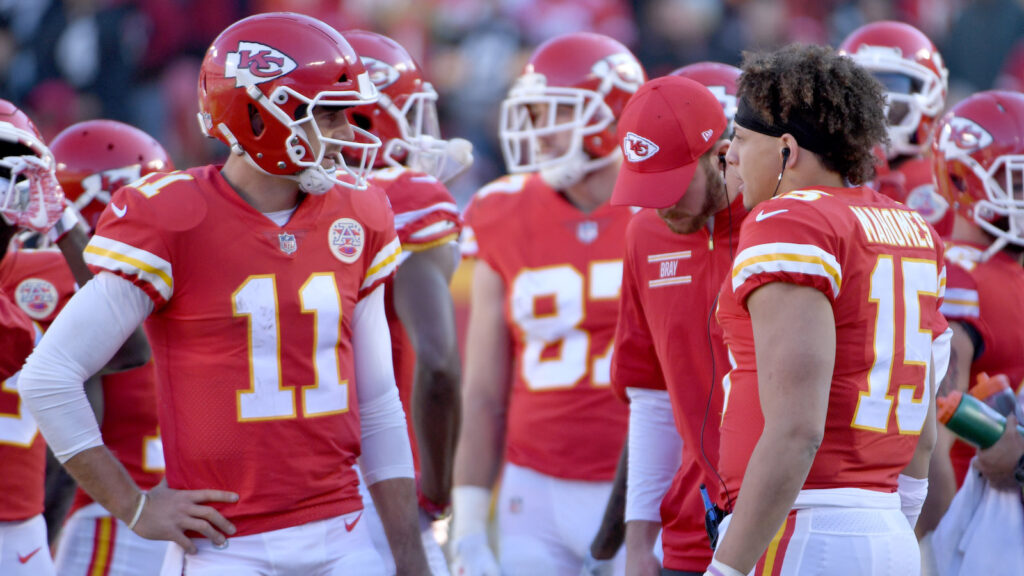
Should Rookie QBs Sit for a while?
The Chiefs sat Patrick Mahomes for a year. The Packers sat Jordan Love for three years. Should teams go back to sitting their quarterbacks to start the season, or even for a full year, instead of throwing them in right away?
NFC Executive
“Each kid is different. Peyton Manning threw the most interceptions ever by a rookie, and everyone knew he’d be fine. Joe Burrow tore his knee up, and everyone knew he’d be fine. He’s so confident and has so much swagger that you knew he’d be good, and of course, he made the Super Bowl the next year. Those guys are wired differently. They aren’t getting ruined by a bad season. But for a guy like Jordan Love and some of these other quarterbacks, of course, it makes sense. There are confidence issues. You throw them in, and if they fail, you could ruin them.”
“To that point, Jets owner Woody Johnson admitted at the recent owner meetings that the team probably could’ve handled Zach Wilson’s situation better: "I feel bad about Zach in some ways because last year it would have been the first time he could just sit back and watch a master (Aaron Rodgers) at work,” Johnson said. “He's never had that. He's been in the fire since Day 1. He needs to be in a place where he can observe for a while.”
NFC Executive Who Played
“The pressure and the eyes on the league are so intense, and there’s this thing where it’s ‘let's just find out now, and if not, we’ll just move on to the next.’ I just go back to my high school playing days. If we threw the ball 10-15 times, that was a lot. Then you go to college, if we threw it 22 times a game, that was a lot. So those quarterbacks 15-20 years ago, it took them a long time to learn how to really be a quarterback who's going to throw it 30-35 times a game.
"Youth football and the spread have changed quarterback (and receiver) play so much that these guys are much more ready to roll when they get to the NFL. Their NFL journey is far more advanced than what it was a while ago and closer to where it needs to be.
"But part of the issue is that some of these guys have immediate NFL success, whether it's C.J. Stroud or Patrick Mahomes, and there’s this internal pressure that builds up: Why can’t our guy do the same thing? C.J. Stroud should be an anomaly; he shouldn’t be the expectation going forward.”
Eric Galko
“One size fits all for any QB growth plan is probably the wrong one. It’s more about separating the talent and upside from how the quarterback learns. Some need to play and learn through making mistakes. Others learn by sitting and watching. I think teams can continue to assess the talent and learning type and execute a plan based on that, but when the player isn’t making strides in an ideal learning environment, it’s smarter to move on than to be stubborn.”
AFC Executive
“I do think that’s ideal, but also not fully realistic in each case. But I do think that probably allows the player more time on task to learn and navigate the ups and downs that come with the job.”
Former NFL Scout
“We’re not in 1995 anymore. You’re not developing a QB who averaged 20 passes a game in college and needs to learn how to drop back and see the field. C.J. Stroud, Andrew Luck, Joe Burrow and Josh Allen all performed right away. Patrick Mahomes and Lamar Jackson both won MVPs in their second year. Between college offenses being advanced and offensive coordinators being able to maximize a QB's skills, I think the league has evolved to the point where coaches can see all they need to see in two full seasons.”
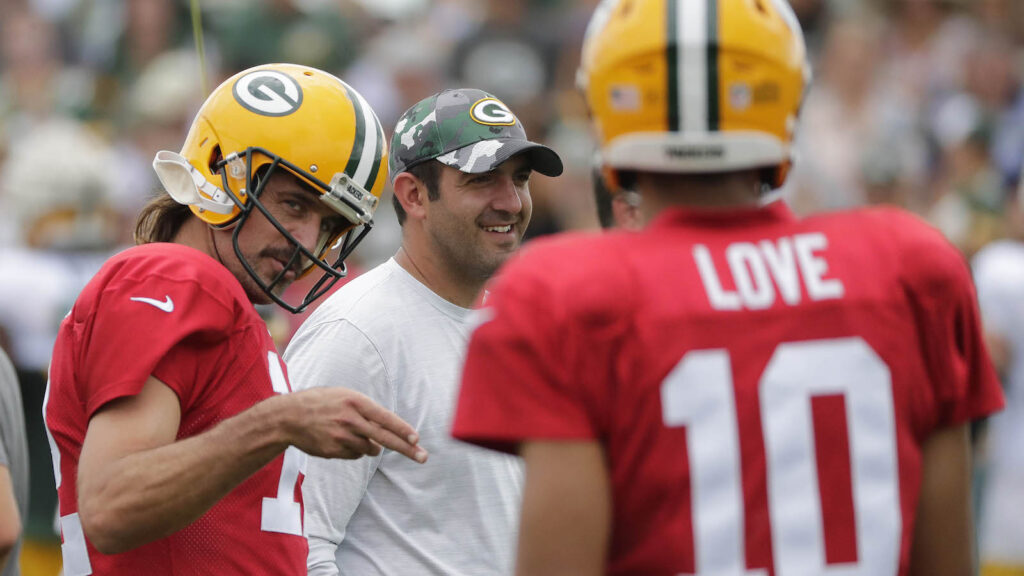
Should Teams Follow the Packers' Template?
Should teams learn from the Packers and select a quarterback while they already have an established but aging quarterback so they know they have the next guy in the building?
The Chiefs did something similar when they identified Patrick Mahomes while they still had Alex Smith. Teams like the Steelers (post-Ben Roethlisberger), Saints (post-Drew Brees), Broncos (post-Peyton Manning) and Patriots (post-Tom Brady) have not recovered.
NFC Executive
"It’s a really hard decision because I look at what the Packers did, and that team was just so close to winning a Super Bowl. What I wonder is, had they taken an elite receiver and paired him across from Davante Adams, would they have won a Super Bowl? Maybe they do."
"I wonder if there’s a part of Brian Gutekunst that wonders, had he taken Tee Higgins and now he’s a Super Bowl-winning GM, does that change things? Or would I rather have Jordan Love right now? Would you give up Jordan Love to have a Super Bowl in 2020?"
AFC Executive
“If you fall in love with a quarterback during the draft process and that quarterback falls to you – even if you already have a Hall of Fame quarterback – it only makes sense to me that you have to strongly consider taking that player. Quarterback is the most important position in this league. Your only chance of winning in this league is if you have one. That also means you have to prepare yourself for the next one.
"I look at how the Eagles took Jalen Hurts and how the Packers took Jordan Love, and the criticism they got. Look at them now. You have to take emotions out of the equation when making these types of decisions.
“Sure, your current guy might get upset. That’s where I believe communication with your players is important as a general manager. The one story that I remember well is Sean Payton in 2017 brought Drew Brees into the draft room to let him know there’s a chance they take Patrick Mahomes. The Chiefs let Alex Smith know about it too, and they ultimately leapfrogged New Orleans.
"But I do believe it’s important to let your current guy know so it doesn’t blow up into something bigger because ultimately, as a general manager and for the future of the organization, you know in the back of your mind, this is the right decision.”


